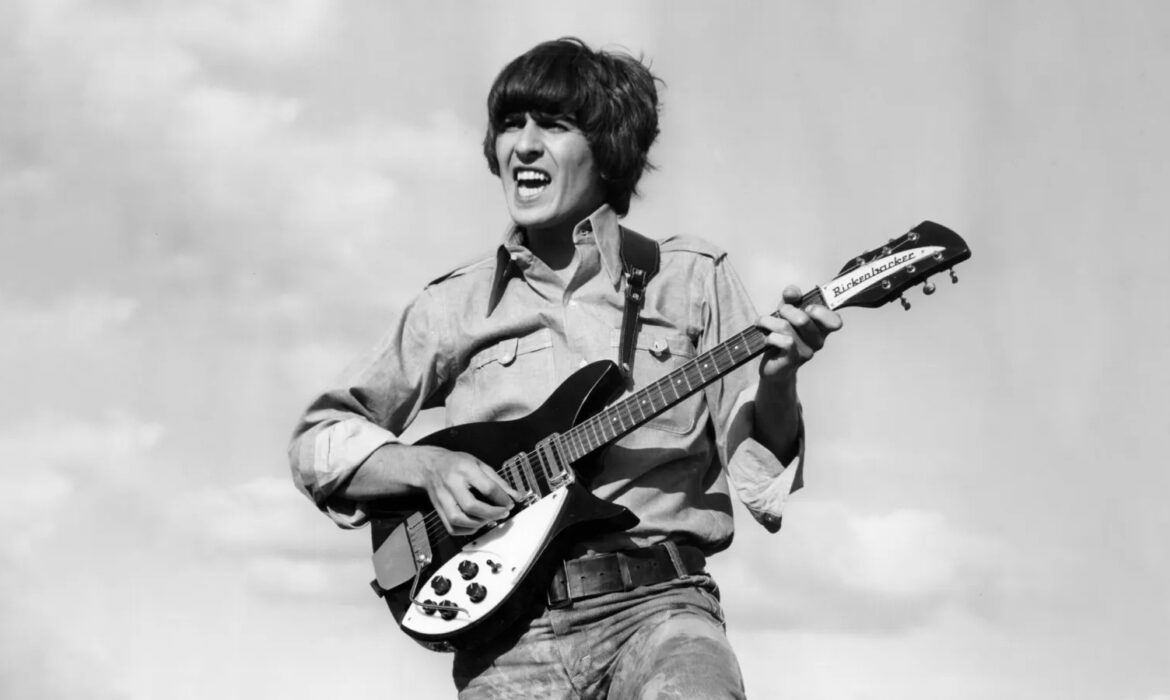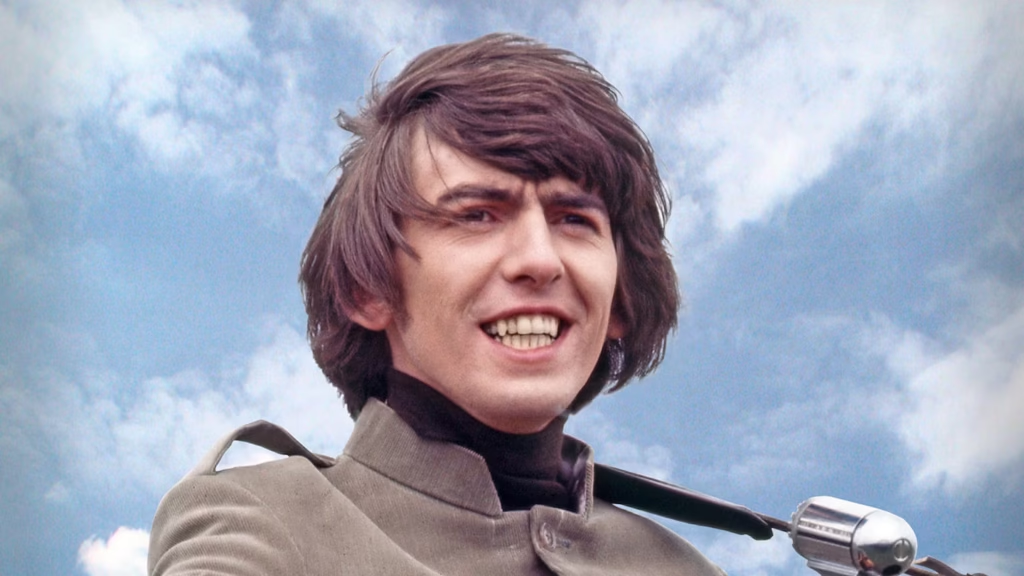
George Harrison: The Quiet Beatle’s Enduring Legacy
George Harrison (February 25, 1943 – November 29, 2001) was an English musician, singer, songwriter, and philanthropist who achieved international fame as the lead guitarist of The Beatles. Though often overshadowed by John Lennon and Paul McCartney, Harrison’s contributions to the band and the music world were profound. His introduction of Indian music to Western audiences, his spiritual pursuits, and his solo career cemented his legacy as one of the most influential musicians of the 20th century.
Early Life and Musical Beginnings
Born in Liverpool, England, to Harold and Louise Harrison, George was the youngest of four children. He showed an early interest in music, inspired by skiffle and rock and roll artists such as Elvis Presley and Buddy Holly. While attending the Liverpool Institute, he met Paul McCartney, who introduced him to John Lennon. Though initially younger than the other members, Harrison’s impressive guitar skills earned him a place in The Quarrymen, which later evolved into The Beatles.
Musical Influences and Early Experiments
George Harrison’s early influences included Carl Perkins, Chuck Berry, and Chet Atkins, whose fingerpicking style he admired. His ability to blend rock and roll with intricate guitar melodies became a signature aspect of The Beatles‘ sound. As he developed his skills, he experimented with different tunings and guitar techniques, adding a unique depth to the band’s recordings. By the time The Beatles secured their record deal with EMI, Harrison had solidified his place as the band’s lead guitarist.
.

.
The Beatles Years: 1960-1970
As The Beatles rose to international stardom, Harrison’s role as lead guitarist placed him at the heart of their sound. While Lennon and McCartney dominated songwriting, Harrison contributed several key compositions, including “Taxman,” “While My Guitar Gently Weeps,” “Something,” and “Here Comes the Sun.” These tracks showcased his growing maturity as a songwriter and proved that he was more than just the band’s guitarist.
The Beatles’ Evolution and Harrison’s Role
The Beatles’ early music was heavily influenced by American rock and roll, but as their sound evolved, Harrison played a crucial role in expanding their musical palette. His interest in Indian classical music introduced new instrumentation and textures to their work, most notably in songs like “Love You To” and “Within You Without You.” Additionally, his experimentation with slide guitar helped shape the band’s later sound, as heard in “For You Blue.”
Indian Influence and Spiritual Awakening
One of Harrison’s most significant contributions to music was his incorporation of Indian sounds. A trip to India in 1966 introduced him to the sitar and the teachings of Ravi Shankar. This influence is evident in songs like “Norwegian Wood” and “Within You Without You.” Harrison’s spiritual awakening led him to embrace Hinduism and meditation, which not only shaped his personal life but also left an indelible mark on The Beatles’ music.
Conflicts Within The Beatles
Despite his significant contributions, George Harrison often felt overshadowed by Lennon and McCartney. As The Beatles’ internal conflicts grew in the late 1960s, Harrison became increasingly frustrated with his role in the band. His tensions with Paul McCartney, in particular, were well-documented, as McCartney’s controlling nature clashed with Harrison’s desire for greater creative input. In January 1969, during the infamous “Let It Be” sessions, Harrison temporarily left the band, further signaling the group’s eventual breakup.
Harrison’s Lasting Impact on The Beatles
By the time of Abbey Road (1969), Harrison had fully come into his own as a songwriter, contributing two of the album’s most beloved tracks: “Something” and “Here Comes the Sun.” His influence on the band’s later music was undeniable, and both Lennon and McCartney later acknowledged the depth of his songwriting talent. Even after The Beatles’ breakup, their fans and critics recognized that Harrison’s contributions had been essential to the group’s legacy.
Solo Career and Philanthropy
Following The Beatles’ breakup in 1970, Harrison quickly emerged as a successful solo artist. His triple album, All Things Must Pass, released in the same year, was critically acclaimed and featured hits like “My Sweet Lord” and “What Is Life.” The album demonstrated his lyrical depth and spiritual insights.
Harrison also became known for his humanitarian efforts. In 1971, he organized The Concert for Bangladesh, one of the first major charity concerts, raising funds for refugees affected by the Bangladesh Liberation War. His philanthropic work set the stage for future benefit concerts such as Live Aid.
Solo Success and Further Musical Explorations
Throughout the 1970s and 1980s, George Harrison continued to release solo albums, including Living in the Material World (1973), Thirty Three & 1/3 (1976), and Cloud Nine (1987). His music often reflected his spiritual beliefs, personal experiences, and social consciousness. Collaborating with artists like Eric Clapton, Bob Dylan, and Jeff Lynne, he explored different musical styles, blending rock, folk, and Eastern influences.
The Wilburys and Later Years
In the late 1980s, George Harrison formed the Traveling Wilburys with Bob Dylan, Tom Petty, Roy Orbison, and Jeff Lynne. The supergroup was well-received and released successful albums, reinforcing Harrison’s reputation as a musician of timeless appeal.
During the 1990s, Harrison battled health issues, including throat cancer and later lung cancer. Despite his illness, he continued to record and work on musical projects until his passing on November 29, 2001.
.
.
Legacy and Influence
George Harrison’s legacy extends beyond his work with The Beatles. His innovative use of Eastern music, deep spirituality, and dedication to humanitarian causes make him one of the most influential musicians in history. His songs continue to inspire artists and fans worldwide, securing his place as an enduring figure in rock and roll history.
Posthumous Recognition
Following his passing, tributes poured in from around the world. His final album, Brainwashed, was completed by his son Dhani Harrison and Jeff Lynne and released in 2002 to critical acclaim. The Concert for George, held in 2002, featured performances from Paul McCartney, Ringo Starr, Eric Clapton, and others, celebrating Harrison’s musical and spiritual legacy.
Conclusion
George Harrison’s contributions to music and humanitarian efforts remain unparalleled. His ability to blend rock with spiritual elements, his pioneering work in introducing Indian music to Western audiences, and his enduring influence on future generations of musicians ensure that his legacy continues to thrive. Though often referred to as the “Quiet Beatle,” his voice and impact resonate loudly in the world of music and beyond.
Check out George Harrison on Amazon by clicking here.
Check out The Beatles on Amazon by clicking here.
.

